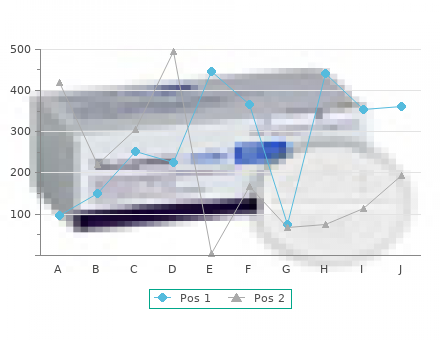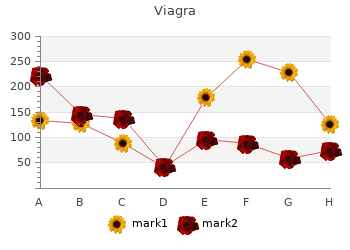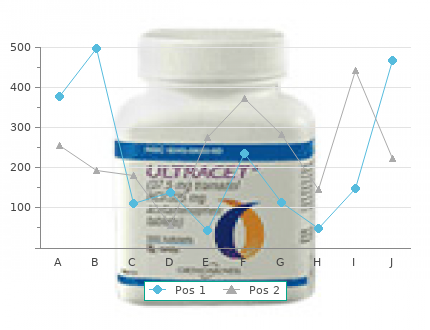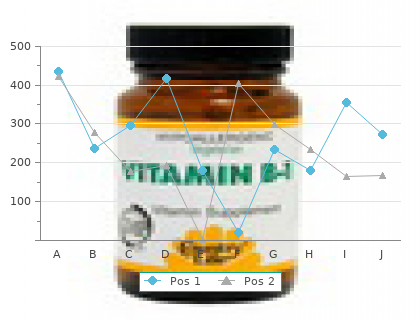Viagra
2018, Sherman College of Straight Chiropractic, Ronar's review: "Viagra generic (Sildenafil) 100 mg, 75 mg, 50 mg, 25 mg. Only $0,23 per pill. Purchase Viagra online.".
Furthermore purchase viagra 25 mg on line, increased prolactin is thought to promote behaviors that encourage long-term partnership. Studies of patients who are treatment-naive or who have been withdrawn from treatment for a period of time indicate that schizophrenia per se does not affect prolactin concentrations. He/she may be able to reduce your dose or change your medication. In fact, many discontinue treatment because of the sexual side effects. The effects of conventional antipsychotics on prolactin are well known. Over 25 years ago, the sustained elevation of serum prolactin to pathological levels by conventional antipsychotics was demonstrated by Meltzer and Fang. The most important factor regulating prolactin is the inhibitory control exerted by dopamine. Any agent that blocks dopamine receptors in a non-selective manner can cause elevation of serum prolactin. Most studies have shown that conventional antipsychotics are associated with a two-to ten-fold increase in prolactin levels. Prolactin is a hormone in the blood that helps to produce milk and is involved in breast development. However, increased prolactin can lead to a decrease in libido when it is not needed. The increase in prolactin that occurs through the use of conventional antipsychotics develops over the first week of treatment and remains elevated throughout the period of use. Once treatment stops, prolactin levels return to normal within 2-3 weeks. In general, second-generation atypical antipsychotics produce lower increases in prolactin than conventional agents. Some agents, including olanzapine (Zyprexa), quetiapine (Seroquel), ziprasidone (Geodon) and clozapine (Clozaril) have been shown to produce no significant or sustained increase in prolactin in adult patients. However, in adolescents (age 9-19 years) treated for childhood-onset schizophrenia or psychotic disorder, it has been shown that after 6 weeks of olanzapine treatment prolactin levels were increased beyond the upper limit of the normal range in 70% of patients. Second-generation antipsychotics that have been associated with increases in prolactin levels are amisulpride, zotepine and risperidone (Risperidal). The most common clinical effects of hyperprolactinaemia (high prolactin levels) are:amenorrhoea (loss of period)gynaecomastia (swollen breasts)galactorrhoea (abnormal breast milk production)azoospermia (no sperm are present in the ejaculate)galactorrhoea (occasionally) (abnormal breast milk production)Less frequently, hirsutism (excessive hairiness) in women, and weight gain have been reported. Sexual function is a complex area that includes emotions, perception, self-esteem, complex behavior and the ability to initiate and complete sexual activity. Important aspects are the maintenance of sexual interest, the ability to achieve arousal, the ability to achieve orgasm and ejaculation, the ability to maintain a satisfying intimate relationship, and self-esteem. The impact of antipsychotics on sexual functioning is difficult to evaluate, and sexual behavior in schizophrenia is an area in which research is lacking. Data from short-term clinical trials may greatly underestimate the extent of endocrine adverse events. One thing we do know is that drug-free patients with schizophrenia have lower sexual libido, decreased frequency of sexual thoughts, a decreased frequency of sexual intercourse and higher requirements for masturbation. Sexual activity was also found to be reduced in patients with schizophrenia compared with the general population; 27% of schizophrenia patients reported no voluntary sexual activity and 70% reported having no partner. While untreated schizophrenia patients exhibit decreased sexual desire, neuroleptic treatment is associated with restoration of sexual desire, yet it entails erectile, orgasmic and sexual satisfaction problems. Atypical antipsychotics are also known to contribute to the development of hyperprolactinaemia. The PDR states that "olanzapine elevates prolactin levels, and a modest elevation persists during chronic administration. For Seroquel (quetiapine), the PDR states, "an elevation of prolactin levels was not demonstrated in clinical trials", and no adverse effects relating to sexual dysfunction are listed as "frequent". The PDR states that " Risperdal (risperidone) elevates prolactin levels and the elevation persists during chronic administration. Before initiating antipsychotic treatment, a careful examination of the patient is necessary. In routine situations, clinicians should examine patients for evidence of sexual adverse events, including menorrhagia, amenorrhoea, galactorrhoea and erectile / ejaculatory dysfunction. This is an important prerequisite to differentiate between adverse effects due to the current medication, those remaining from the previous medication or symptoms of the illness. Furthermore, such checks should be repeated at regular intervals. The current recommendation is that a rise in prolactin concentrations should not be of concern unless complications develop, and until such time no change in treatment is required. Increased prolactin may be due to the formation of macroprolactin, which does not have serious consequences for the patient. If there are doubts that hyperprolactineamia is related to antipsychotic treatment, other possible causes of the hyperprolactinaemia have to be excluded; these include pregnancy, nursing, stress, tumours and other drug therapies.


And due to the possible loss of touch with reality (psychosis) the person may be experiencing buy viagra 75mg free shipping, he/she may not even be able to give an accurate accounting of what they are experiencing. Therefore, the symptoms of schizoaffective disorder can sometimes be more accurately assessed by family accounts and through medical records. Schizoaffective disorder is thought to be more common in women but women may have an age of onset of schizoaffective symptoms later than men. Schizoaffective disorder is thought to be less common than schizophrenia and extremely rare in children. Because a person with schizoaffective disorder might be experiencing depression, or not, mania, or not, a mixed episode, or not, and psychosis, or not, at any given time, the list of possible schizoaffective disorder symptoms is extensive. A person need not exhibit all the schizoaffective disorder symptoms in order to have schizoaffective disorder. Often there will be periods approaching wellness interspersed between schizoaffective episodes with a variety of symptoms. People who experience psychotic symptoms alongside manic or mixed episode symptoms have schizoaffective bipolar type whereas those who experience psychotic episodes and depressive episodes have schizoaffective disorder depressive type. People often seek help only for some of their schizoaffective disorder symptoms ??? typically those that affect mood and daily function or possibly abnormal thoughts. However that does not mean that a larger cluster of unrecognized symptoms does not exist. People with schizoaffective disorder are at an increased risk of:Schizoaffective disorder criteria are defined in both the latest version of the Diagnostic and Statistical Manual of Mental Disorders (DSM-IV-TR) and the International Classification of Diseases, Tenth Revision (ICD-10). This complex disorder is challenging to diagnose and treat even when the DSM-IV-TR criteria are properly applied. The DSM-IV-TR is the manual that contains the criteria doctors use to make diagnoses of mental illnesses. The schizoaffective DSM-IV-TR diagnostic criteria are the following: An uninterrupted period of illness occurs during which a major depressive episode, a manic episode, or a mixed episode occurs with symptoms that meet criterion A (see below) for schizophrenia. The major depressive episode must include a depressed mood. During the same period of illness, delusions or hallucinations occur for at least 2 weeks, in the absence of prominent mood symptoms. Symptoms that meet the criteria for mood episodes are present for a substantial portion of the total active and residual periods of illness. The disturbance is not due to the direct physiologic effects of a substance (e. The bipolar type is diagnosed if the disturbance includes a manic or a mixed episode (or a manic or a mixed episode and major depressive episodes). The depressive type is diagnosed if the disturbance includes only major depressive episodes. In the DSM-IV-TR, criterion A for schizophrenia requires two of the following: Disorganized speech (e. Schizoaffective Disorder Criteria Rating ScalesSchizoaffective disorder severity can also be measured using a variety of rating scales. Tools that may help measure the severity of schizoaffective disorder are those typically associated with schizophrenia, bipolar disorder and depression. These tools include:Positive and Negative Symptom Scale for Schizophrenia [PANSS] ??? rates positive symptoms like delusions, negative symptoms like emotional withdrawal and general psychopathology like anxiety Hamilton depression scale ??? rates the severity of depression symptoms like insomnia and agitationYoung mania scale ??? rates the severity of mania symptoms like increased energy and sexual interestCut down, annoyed, guilty, and eye opener (CAGE) questionnaire ??? regarding substance use and abuseSeverity scales are useful as they can plot a starting point when the schizoaffective disorder is first diagnosed and then track improvement throughout treatment. Written by Michael David CrawfordYou may be surprised to hear that I suffer from a devastating and poorly understood mental illness. I want to demonstrate that in fact, friendship with the mentally ill can be a rewarding experience. Read on, and I will tell you how I recovered from schizoaffective disorder - but have not been cured. I will tell you how I learned to live with mental illness every day. We have 2550 guests and 2 members onlineDepression can often be treated quite effectively by drugs called antidepressants. This leads me to another odd experience I have had a number of times. Depression can often be treated quite effectively by drugs called antidepressants. There are many different antidepressants that do this via several different mechanisms, but they all have the effect of boosting one of the neurotransmitters, either norepinephrine or serotonin. It can be hard to keep up hope while waiting for the antidepressant to start working. At first all one feels is the side effects - dry mouth ("cottonmouth"), sedation, difficulty in urinating.

The goal was to identify factors that contributed to satisfaction from the perspectives of individual partners rather than to test hypotheses buy viagra 100 mg with amex. Second, compared to other tests of statistical significance, chi-square has fewer requirements for population characteristics. Third, the expected frequency of five observations in most table cells was met. To assess the strength of the associations between psychological intimacy and the independent variables, a correlation analysis was conducted. Because of the dichotomous nature of the variables, a phi coefficient was computed for the dependent variable and each independent variable. Variables that had been related significantly to psychological intimacy in the chi-square analysis and identified in previous studies as having importance to understanding psychological intimacy were selected for building a theoretical model. Based on the phi coefficients, communication was not included in the model (see next section). Two models were tested using logistic regression: one model included the sexual orientation of couples (heterosexual, lesbian, and gay males), the other substituted gender (male and female) for the sexual orientation of couples. Logistic regression was a useful tool in this exploratory research, where the goal was to develop theory rather than test it (Menard, 1995). TOWARD A DEFINITION OF PSYCHOLOGICAL INTIMACY The dependent variable was psychological intimacy. Participants talked of experiencing psychological intimacy when they were able to share their inner thoughts and feelings they felt to be accepted, if not understood, by the partner. Such experiences were associated with feelings of mutual connection between partners. When participants talked of being psychologically intimate with their partners, a sense of peace and contentment permeated their remarks. Coding this variable involved an assessment of responses to questions that asked each partner to talk about their relationships. These questions included a range of topics such as what the partner meant to the participant, how their relationships may have been different from other relationships, how participants felt about being open with their partners, what words best described the meaning of the partner to a participant, etc. Of particular importance were questions that elicited responses about the quality of communication such as, "How would you describe the communication between you? Although positive communication could be present without having a sense that the relationship was psychologically intimate, at least in a theoretical sense, the two factors were correlated substantially (phi =. Therefore, we decided not to include communication as an independent variable in the regression analysis. Psychologically intimate communication captures what we are referring to as "psychological intimacy. I can say stuff to her that I would never say to anyone else. The partner spoke of how their psychological intimacy had evolved:Although we like a lot of the same things, our interests are different... I think we both each really like the other one a lot... There was a bond early on, in part because it was a different kind of relationship... As the couples in this study grew older together the experience of psychological intimacy was marked by a deepening sense of relational communion between them, yet a respect for their differences, as illustrated in the relationships of that couple. A heterosexual couple reflected on the meaning of intimacy in their relationship that had lasted 30 years. The wife experienced her spouse as: My best friend, best lover... Unfortunately, we have not had parents for many years. He is the person who most cares what is happening to me. The meaning of intimacy to her husband was described by him:I just like her to be next to me, near me. I think we are our own people, but we do it together. The responses of these four partners reflected several themes that were central to understanding and defining psychological intimacy. The second theme, interdependence, referred to maintaining separateness within the attachment to a partner. Maintaining interpersonal boundaries in these relationships apparently helped to sustain a sense of psychological intimacy; that is, individuals felt "safe" in revealing their inner thoughts and feelings because they could count on a partner to respect their separateness and to accept, if not understand, them. For both women and men, themes of connectedness, separateness, and mutuality were apparent in their responses, although men tended to emphasize proximity and women mutuality. In selecting the independent variables, two criteria were used:1. The variable had to be identified in previous studies as a significant factor in shaping psychological intimacy. The variable had to be related significantly to psychological intimacy in the chi-square analysis (see Table I) and not be correlated substantially with the dependent variable.

Reexamine your expectations or priorities in life and buy viagra 25mg free shipping, if necessary, adjust them to suit reality better. You can eliminate such problems by changing your negative thinking and learning to accept the situation. When you can do something about a problem, however, you should. For example, you may need to leave an alcoholic spouse or to go to school to prepare for a better job. Work on your personal problems, using small steps to make sure you avoid becoming overwhelmed. Work on only one or two simple things at a time, breaking large or complex problems into goals you can easily accomplish. What negative or stressful situations exist in your life? Brainstorm solutions and ask other people for ideas. Some depressed people reject all the possible solutions, finding reasons to eliminate each one as unacceptable, unpleasant, or unworkable. Take a long, hard, honest look at yourself for personal problems, paying particular attention to repeating problems in your life. Do you need more interests and activities to avoid boredom and keep your mind off negative thoughts? If you avoid confrontations and bury your anger at mistreatment from others until you explode, work on assertiveness and expressing your anger in constructive ways. Are some people inconsiderate, unkind, overly critical, or overly hostile toward you? If certain people in your life contribute to your depression by the things they do, you may need to become more assertive with these people, to reduce your contact with them, or even to eliminate them from your life. Work on replacing negative thoughts with positive thought alternatives every day. If you tend to blame circumstances or other people for your depression, combat these thoughts of helplessness by reading or by repeating, "I made myself depressed over that. If you force yourself to start, you will often find that you do get some pleasure from and gain some skill in the activity after all. You probably have negative thoughts about lacking energy, not being in the mood, hating exercise, etc. Develop these slight feelings and take pride in your activities. You can develop them into very rewarding activities. Good social skills and a good network of friendships ranging from casual to intimate ones help prevent depression after life stresses and speeds recovery from depression. Happy people generally have several very close friends and a number of other friends, some closer than others, with whom they can share different activities and parts of themselves. Marital relationships are often important in depression. An appreciative, complimentary, supportive marital relationship can protect you from depression despite challenging life stresses, and as noted previously, marital problems often lead to depression. Work on increasing the positive behaviors in your marriage. Perhaps your marriage lacks a confiding relationship of sharing feelings and receiving acceptance, understanding, and emotional support from each other? Sharing feelings is much more important than simply sharing facts with your spouse. Ask your spouse to compliment you more and to say many of the things normally taken for granted, to show appreciation for the routine things you do every day. Learn about good marital skills and put them to use in your life. Research shows depressed people are more likely than other people to interact with their spouses and children in hostile or angry ways. Do you yell, sulk, bring up old resentments from the past, nag, insult or use negative labels, make demands or ultimatums, or criticize with overgeneralizations? Do you alienate other people with communication problems such as avoiding important issues, blaming, or assuming you know what another person thinks? Another communication problem is bringing up too many problem issues without focusing on solutions, one at a time.
10 of 10 - Review by Q. Stan
Votes: 73 votes
Total customer reviews: 73

